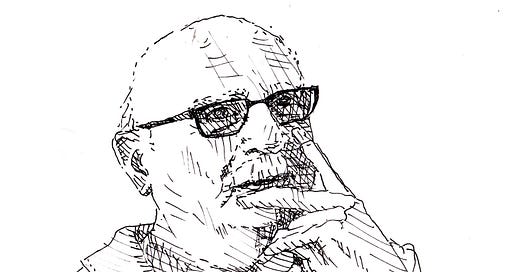My father died on January 11, 2023, at 3:30 a.m. This is the essay I wrote a week later after watching the slow, maddening, beautiful thing happen in person. Thanks to everyone who wrote in to say nice things after it ran. Thanks to everyone who wrote in to welcome me into the parental death club. There was genuine warmth there.
So, grief. I experienced …
Keep reading with a 7-day free trial
Subscribe to The Small Bow to keep reading this post and get 7 days of free access to the full post archives.




